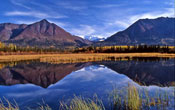EnviroThursday Fall 2015
Contact
Environmental StudiesOlin-Rice Science Center, Room 249 651-696-6274
esson@macalester.edu
instagram twitter
Presentations take place at 12 noon, Olin-Rice Room 250
September 24, 2015
“Discussion of Pope Francis’ Encyclical on Climate Change”
Speakers: Jim Laine, Arnold H. Lowe Professor of Religious Studies, Macalester College, and Colleen Carpenter, Associate Professor of Theology, St. Catherine University
In late September, Pope Francis will make his first visit to the U.S., during which he will address both the UN General Assembly and a joint meeting of the U.S. Congress. Join two religious studies professors in a discussion about the impacts of Pope Francis’ encyclical letter LAUDATO si’ on climate change. Can this provocative call for robust individual action and sweeping transformation of global economic and political systems help build solidarity across the world?
This event is sponsored by the Environmental Studies and Religious Studies Departments.
October 1, 2015
“Community Solar: One Key Strategy Making Solar Available to All”
Speaker: Michael Noble, Executive Director, Fresh Energy
Michael Noble will tell the story of Minnesota’s community solar program–it’s genesis and early implementation challenges. He’ll talk about how Fresh Energy teamed up with public and private partners to help shape what will be the nation’s most successful community solar program–and will tip his hat to Macalester’s important pioneering role in opting to go “all-solar”.
Michael is the Executive Director of Fresh Energy and has built Fresh Energy into a visionary and practical group of professionals who shape and drive innovations in energy and transportation policy.
October 8, 2015
No EnviroThursday – Check out the 22nd Annual International Roundtable
October 15, 2015
“The Past, Present, and Future of Drinking Water”
Speaker: Jim Salzman, Professor of Environmental Law, Bren School of Environmental Science and Management, Univ. of California – Santa Barbara
With concerns over pollution and fracking, is it safe to drink tap water? Should we feel guilty buying bottled water? Is the water we drink vulnerable to climate change? With springs running dry and reservoirs emptying in many parts of the world, where is our water going to come from in the future? Drinking water highlights the most pressing issues of our time–from globalization and social justice to terrorism and climate change–and how humans have been wrestling with these problems for centuries.
Jim Salzman is the Donald Bren Distinguished Professor of Environmental Law with joint appointments at the Bren School and the UCLA School of Law.. In more than eight books and seventy articles and book chapters, his broad-ranging scholarship has addressed topics spanning drinking water, environmental protection in the service economy, trade and environment conflicts, and the legal and institutional issues in creating markets for ecosystem services. His most recent book, Drinking Water: A History, was praised as a “Recommended Read” by Scientific American and excerpted in Natural History.
October 22, 2015
No EnviroThursday – Fall Break
October 29, 2015
No EnviroThursday – ES Majors/Minors Party
November 5, 2015
“A Tale of Two Cities: Dutch Elm Disease in Minneapolis and St. Paul in the 1970s”
Speaker: David Soll, Assistant Professor, Watershed Institute, University of Wisconsin – Eau Claire
Until the arrival of Dutch elm disease, American elm trees dominated the streetscape in many Eastern and Midwestern cities. David Soll will tell the story of Minnesota’s attempts to combat the disease in the 1970s. What lessons might the history of the fight against Dutch elm have for the current fight to slow the spread of emerald ash borer and other deadly tree diseases?
David is an urban environmental historian whose work focuses on the environmental dimensions of urban infrastructure. In 2013, he published Empire of Water: An Environmental History of the New York City Water Supply, which won the Abel Wolman Award for the best book in the history of public works from the Public Works Historical Society.
November 12, 2015

“From Copper to Conservation: Relative Wild in Wrangell St. Elias National Park and Preserve”
Speaker: Margot Higgins, Visiting Assistant Professor of Environmental History and Politics, Macalester College
Margot Higgins’ presentation will examine the cultural and scientific dynamic between the communities that live in the Park and the National Park Service. While most prior research has focused on the impact of Park establishment on local people, Margot will discuss the “inhabited wilderness” of this area.
Margot completed her PhD from UC Berkeley in 2015. Her research examines the history and politics of national park establishment under the Alaska National Lands Conservation Act in 1980. This congressional Act legally required the continuation of “traditional livelihoods” for “Native and non-native Alaskans.” She has lived in her field site within Wrangell-St. Alias National Park on and off for the last decade. This semester Margot is teaching Americans and the Global Parks and Wilderness and Cycling the Urban Landscape.